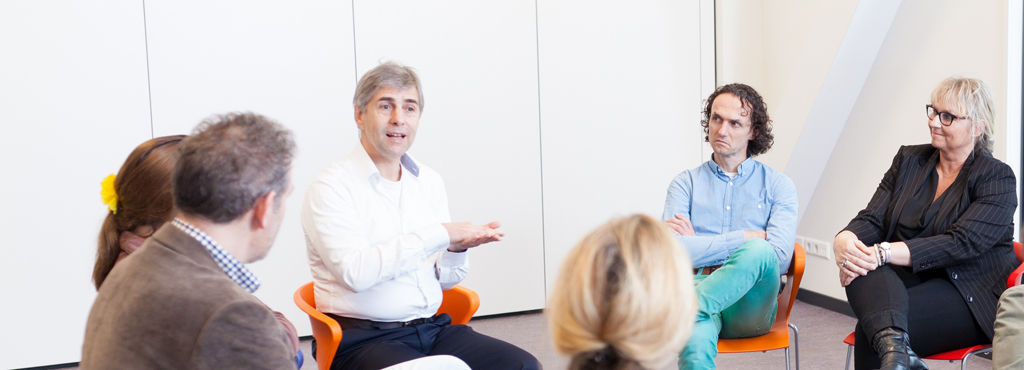
Nonviolent Communication
Nonviolent Communication is about the kind of communication that makes sense and everyone needs at work, at the kitchen table or in the supermarket.
It is a method, based on the work of the American psychologist Marshall Rosenberg (Nonviolent Communication), with which you can create a connection in your communication with others on a daily basis.
This is a 4-day training in which we cover the basics of Empathic Communication, demonstrate how it works and practise it in the group you are in. Our goal is to increase your understanding and skill so that you can apply this in everyday life. This insight will enable you to communicate more clearly and effectively. We’ll be looking at the two parts of communication. Firstly we’ll look at the 4 elements of Empathic Communication that help us express ourselves authentically. These 4 elements are: Observation, Feelings, Needs, and Requests. Secondly we’ll look at Empathy, which helps us to connect with others and also understand ourselves better. During the 4 days of the Basic Training you will have ample time to practice these 4 elements and develop your empathic skills. To prepare yourself for this training we suggest you read Marshall Rosenberg’s book “Nonviolent Communication”, on which most of this training is based.
What is this training like?
During this day we’ll address the do’s and don’ts of communication that will help you to express yourself more clearly. We’ll also work on listening skills. This will make it easier for you to relate to others as they respond to you. We’ll also tap into the emotional experience that you have and the beliefs that you may hold that keep you from expressing yourself or cause you to express yourself in a particular way. Basically what we’ll be aiming at is giving you an understanding of the emotional and rational workings of your communication. We are convinced that understanding yourself better will give help you to create the change you wish to see in your life. Adding skills will then help you to make the next step and give you more choice in how you want to behave. During this day we’ll talk about some of the theory that you need to understand, we’ll do a little demo every time and then you get to practice in two’s or little groups to get the feel of it yourself. Practicing the skills this day will make you feel more confident in applying what you have learned outside this workshop too. At the end of every topic we’ll do an evaluation to share what we’ve learned and answer any questions.
For whom is training useful?
Participants who said this training was of great benefit to them were parents, teachers, couples, IT-specialists, lawyers, doctors, physiotherapists, mediators and a wide range of people in other professions who wanted a better connection with others and develop their communication skills. The skills you learn can be applied immediatly both in business as in your personal environment.
Data, location and time
See our agenda on this site for dates and locations. All dates are subject to change and will be confirmed on registration. Unless indicated otherwise training times are daily from 10am – 5pm.
Mediators
This training has been approved by the Dutch Mediation Institute MfN and entitles a participant to 30 points in the Permanent Education System. Mediators receive 5 days of training. Mediators will find more information about the Permanent Education Program under the Mediator I and II description in the training menu. .
Interpreters and Translators
The Bureau BTV has accredited this basic training as a PE-activity. Interpreters and translators who are registered with the Register of Sworn Interpreters and Translators receive 22 PE points in category A t / m D for participation in this training.
Training / Workshop dates
* All dates are subject to change and will be confirmed on registration. Unless indicated otherwise training times are daily from 10am – 5pm.

